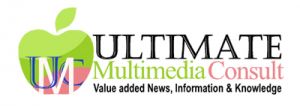Course Description:
The Multimedia Journalism & Production Course offers practical digital and multimedia skills to working journalists, media professionals, journalism trainers and students as well as ongoing support to think, prepare and produce innovate multimedia content, products and platforms. The training is meant to empower a generation of digital media storytellers with the skills, knowledge and strategic implementation and production of digital media content for web and mobile access.
Learners will get equipped with the best practices and tools for telling stories to an online audience—through social media, on the web and to a mobile audience. They will learn to produce and engage with video, digital photography, audio, writing/ packaging for online and data visualizations. They will be exposed to the tools and storytelling skills to produce, edit and post content 24/7 well optimized for online and mobile access. This will include having the skills to implement coding or use tools for quick production of content or platforms.
Upon completion of this program, participants will have the knowledge and tools necessary to apply their new skill set immediately to their professional work in their respective environments.
At the end of the course, learners will get a Certificate in Multimedia Journalism Skills from Makerere University. This will be after they produce a satisfactory multimedia story/project published by their media house or company, their blog or our training website.
Course Objectives:
- Equip learners with practical multimedia skills for effective 21st century journalism
- Enrich the debate and solutions towards journalism and media survival in the digital age
- Spur new media practices, thinking and content production
- Contribute to the survival and development of journalism and the media.
- Boost the role journalism plays through equipping learners with innovative news and information delivery packages and tools.
- Make learners familiar with practical set up & operation of news & information packages
Areas of Training/ Course Outline
We have designed hands on tutorials in a way that enables learners to get appropriate multimedia skills working with the equipment/ tools they can easily access to exploit innovative publishing tools and technologies to reach more audiences in better ways. We ensure learners practically utilize the new tools and skills to produce multimedia work on their way to new Journalism excellence. Specifically, learners will be taken through the following:
- New (digital) media thinking
- Introduction to the Internet and Multimedia Journalism
- Elements of Multimedia Storytelling
- Writing for online and mobile
- Basic website design (html, css, php, mysql) and Content management systems
- Creating and running successful blogs (create blog to use through course)
- New Media tools and terms
- Computer and mobile assisted Reporting-essential skills and tools for journalists.
- Digital Audio Production and podcasting
- Digital Video Production and publishing online and mobile
- Digital Photography and imaging for the web
- Multimedia design including Making logos, banners etc
- Developing Multimedia News and Information Packages
- Internet security basics
- Basic mapping for news and information delivery
- Data Visualization
- Immersive storytelling tools and practices
- Maximizing Social media for better news and information delivery
- New media revenue models
- Multimedia entrepreneurship
- Web analytics and tracking
- Search Engine Optimisation
- Live reporting and Livestreaming
- Content aggregation and curating
- Participatory Journalism, Crowdsourcing and crowdsourced journalism tools
- Media Convergence and new media strategies
- Understanding the New Media Order: Cooperation Vs competition
Method of teaching/delivery:
The following approaches will be used during the teaching and learning process:
Interactive lectures, demonstrations, presentations, guided class discussions and debates, group work among others. The teaching–learning process is participatory offering both the facilitators & trainees chance to share their experiences and to practically work on what they learn on a regular basis.
To read more about this course or to apply, please click here.
ASK US ANYTHING BELOW






Leave A Comment